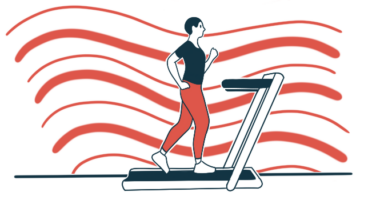Expert Voices: Integrative Medicine for People With Parkinson’s Disease

In the first installment of our new series, “Expert Voices,” Parkinson’s News Today asked neurologist Indu Subramanian, MD, to answer some of your questions related to implementing integrative medicine in Parkinson’s disease care.
Dr. Subramanian is board certified in integrative medicine. She received her medical degree from the University of Toronto, Canada. She did her neurology residency and movement disorders fellowship training at UCLA. Dr. Subramanian has stayed on at UCLA and is now a clinical professor of neurology. She’s passionate about studying palliative care and the effects of loneliness on people living with Parkinson’s.
She established the movement disorder clinic at the West Los Angeles Veterans Affairs Medical Center and has assumed the position of the director of the South West Parkinson Disease Research, Education and Clinical Care Center of Excellence. She is doing a contemplative fellowship for healthcare providers through the New York Zen Center, is an AAN Palatucci Fellow, and is designing a teacher training program for yoga instructors who are interested in working with Parkinson’s patients.

Indu Subramanian, MD, is board certified in integrative medicine and passionate about studying palliative care and the effects of loneliness on people living with Parkinson’s. (Photo courtesy of Indu Subramanian)
What is integrative medicine?
Integrative medicine is a medical approach that integrates aspects from other healthcare systems — Ayurveda, traditional Chinese medicine, etc. — along with Western approaches (not instead of). It is a system of care that attempts to activate the body’s innate healing process rather than relying on cure-oriented medicine.
There is an understanding that the mind and body can be incredibly resilient and that they are fundamentally connected. It speaks to the World Health Organization’s definition that “health is a state of complete physical, mental and social well-being and not merely the absence of disease or infirmity.”
It includes a holistic, lifestyle-oriented approach, emphasizing health promotion and prevention. It places the patient and their loved ones in the center of the circle of care with the team of providers working together around them as partners in the healing process.
What misunderstandings about integrative medicine would you like to dispel in regard to Parkinson’s?
Integrative medicine used to be known as “complementary and alternative medicine,” and a lot of people think that means that we do not value standard Western approaches. The point is to marry the best of both worlds.
I am a strong believer in optimizing medications such as levodopa and then adding on lifestyle approaches such as a solid exercise plan or a mind-body approach such as yoga to get the best of both worlds. I do not try to keep people off of levodopa replacement if it is indicated due to motor issues that would get in the way of exercise or social connection.
Generally, what’s your thought process for deciding what treatment might be best for a patient to try?
It is important to customize treatment to the individual person while honoring the cultural context. I try to get a sense of what is important to the person living with Parkinson’s — what brings them joy and meaning — and then try to address the issues from there.
Every person is different and goals of care can also change depending on what else is happening to the person at the time. For a grandmother living with Parkinson’s, the goal may be to play with their grandchild on the floor with their toys.
For a retired older man, it may be playing golf with his buddies. For a younger woman, it may be cooking with her sisters at a holiday meal. Having an honest dialogue about what the patient enjoys from a lifestyle perspective is also key. Prayer may be very accessible for some cultures; for others, it may be yoga or tai chi.
What are some safety issues in integrative medicine? What should one seek or be wary of when selecting an integrative medicine provider?
People with Parkinson’s should be wary of treatments that are touted as a cure or a miracle. They should be careful about treatments that are only available outside of the U.S. or Europe, or that are very expensive or profit driven. The source of information should be reputable, and not just be from “informercials” on the internet, TV, or social media.
If a provider asks you to stop conventional treatments, then you should also beware. It is imperative that you speak to all of your providers about any treatments you are considering. Good communication is the key to success and to integrating treatments.
It is important to be aware that supplements and herbs can be very potent and have the potential to interact with your medications (e.g., Saint John’s wort). They are metabolized (broken down) by the liver or kidney and may affect those organs.
Some of them can be toxic (e.g., vitamin B6 can cause neuropathy). Some can have side effects that can be harmful to your safety (e.g., sleepiness from cannabis may compromise driving or decision making; apathy can make you less motivated to exercise). Some have been historically beneficial when practiced in a healthcare system or were often beneficial when cooked into a food or as part of a holistic diet plan (e.g., turmeric is absorbed best with fat and black pepper in curry in an Ayurvedic diet).
These supplements are not regulated by the FDA and dosage and formulation ingredients may be uncertain; for example, it can be difficult to know the THC vs. CBD amounts in cannabis products.
Are there generally helpful and safe forms of integrative medicine you tend to recommend to Parkinson’s patients?
In Parkinson’s disease, lifestyle approaches make a lot of sense to incorporate early on from diagnosis. Sleep, exercise, a Mediterranean diet, social connection, and mind-body approaches are all things that most clinicians would agree make sense in Parkinson’s, but there is not a lot of formal data on these approaches and most clinicians still focus on pharmacological and surgical treatments of Parkinson’s.
My main focus has been on the mind-body approaches in Parkinson’s, including meditation, breath work, yoga, and tai chi. I feel these hold a lot of promise for our patients, especially in treating nonmotor issues and mental health issues in Parkinson’s.
How about acupuncture?
There has been mixed evidence for acupuncture. Some trials on pain in Parkinson’s seem promising. In a study on fatigue, both the sham and treatment sites showed some benefit. More research should be done in this area.
Are any important nutrients or vitamins often overlooked for people with Parkinson’s?
Certain basic nutrients like B12 and folate are key for all aging people. Additionally, vitamin D is important and we advise correcting into the high normal range.
Do you have go-to recommendations for Parkinson’s patients experiencing fatigue?
Fatigue is tough to treat. I advise regularizing your schedule by having a set wake-up and bedtime (at least eight hours of sleep), as well as set meal times with a healthy Mediterranean diet (not too much processed food or sugars). There may be co-existing sleep issues, such as sleep apnea, that should be ruled out.
Coexisting medical issues such as thyroid problems, anemia, B12 or iron deficiency also should be ruled out. Trying to include regular exercise for 30 minutes per day, five days of the week, is also helpful.
How would you advise a patient to start when they look into beginning integrative medicine treatment?
I would focus on making a small meaningful change in your lifestyle. Since my main interest is the mind-body approach, perhaps you can start with yoga or mindfulness. If that is not available to you, then consider getting out into nature or incorporating some form of prayer. If you can, add social connection by including other people.
What changes would you like to see in integrative medicine research for Parkinson’s?
I would like to see a change in how we study treatments in general: historically, trials needed to include a double-blind placebo controlled setup. This type of model is hard to use when studying integrative medicine treatments.
What in integrative medicine research makes you most hopeful for the Parkinson’s population?
I am very excited to see more and more evidence for things like exercise and mind-body approaches. Increased study in the area of social connection is also huge, given the pandemic. Hopefully we can use telehealth technologies to connect patients to these modalities and include social connection to make these more accessible to all people with Parkinson’s worldwide.
Expert Voices is a monthly series involving a Q&A with an expert in the Parkinson’s space about a specific topic. These topics and questions are curated from a survey in which we ask readers what they want to learn more about from experts. If you’d like to submit topics or questions for consideration in a future installment of the series, click here to take the survey.
Parkinson’s News Today is strictly a news and information website about the disease. It does not provide medical advice, diagnosis, or treatment. This content is not intended to be a substitute for professional medical advice, diagnosis, or treatment. Always seek the advice of your physician or other qualified health provider with any questions you may have regarding a medical condition. Never disregard professional medical advice or delay in seeking it because of something you have read on this website.






